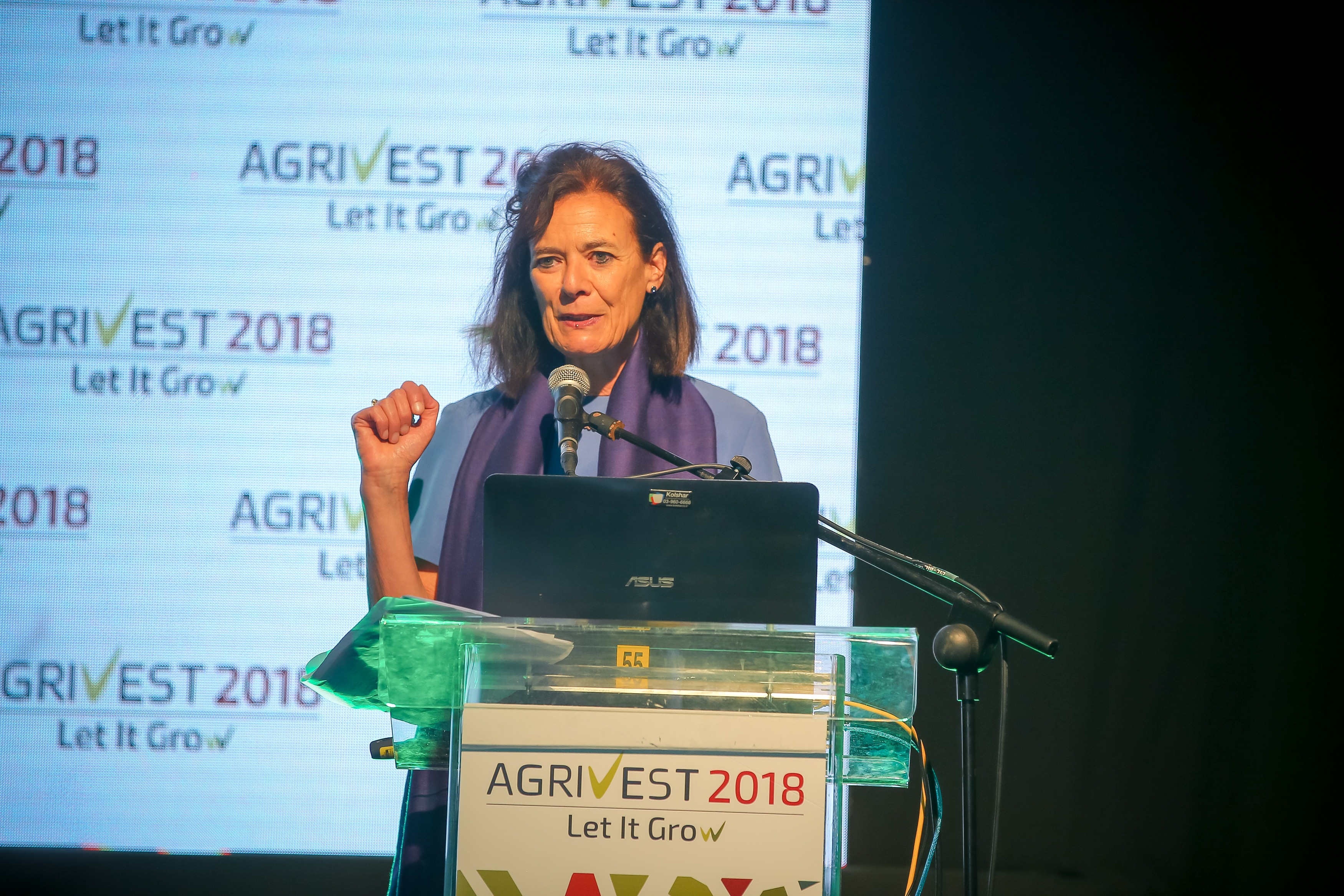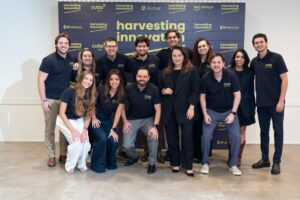It is “unbelievable” in the 21st century we still measure agricultural productivity by land use and not water use, Professor Louise O. Fresco, the president of Wageningen University & Research in The Netherlands, told delegates at AgriVest 2018 conference in Tel Aviv last week.
In her speech, entitled Transition to a sustainable agri-food system, the former Assistant Director-General of the UN Food and Agriculture Organization (FAO) argued that climate change presents the biggest challenge to the agriculture industry.
Even though the global population is better fed compared to the past, that does not guarantee food security for the future. To cope with future demands, people need to ramp up production, but it cannot be done by disregarding our planet’s finite resources. The answers lie in managing the food chain with technology – specifically precision tech that allows us to manage the negative effects of production, such as use of too much fertilizer, too much pesticide, and too much water, she argued.
We also need to be creative about new food sources by looking at lower species in the aquatic food chain as a viable and balanced way of providing protein to the population, she added.
Policy and government initiatives are critical to transition the planet to a sustainable agrifood system. Encouraging the younger generation to farm is one-way governments globally can get involved; providing access to farmland without the need for inheritance, Fresco exampled. Encouraging the younger generation to study agriculture at school and agriculture could also promote the use of smarter farming methods globally. If a greater number of young people understand and work in agriculture, the use of more high-tech tools from other industries is much more likely, she added.
Fresco also encouraged the creation of a circular economy across various parts of the industry. For example, biomass presents a wealth of minerals, proteins, and other elements that can be used again and again. The use and reuse of biomass (not for fuel) is just one important change we need to make.
We caught up with Fresco after her talk:
What are the first three steps in policy changes you suggest for the agrifood sector?
The first is regulating genomics and reassessing or removing GMO regulation, as these really stifle the sector.
The second is using waste cyclically – leveraging technology to create a circular economy.
The third is removing trade barriers as these are negative for agriculture and innovation.
What are the most important trends in the last decade that can affect trends in the coming 10 years?
The speed of technological changes and the price. Technology also breaks disciplinary boundaries. There is a great need for open-minded people.
What’s interesting about the agrifood tech ecosystem in Israel?
The fact that it’s relatively small, as in closely knit, so this creates a sense of community. There are lots of personal connections, and it’s very easy to be in contact. In this way, it is reminiscent of The Netherlands, which is a bit bigger than Israel, but not by much. As well, the younger generation that has come out of the army with leadership skills is a great asset, and there is an amazing sense of creativity.
Both Fresco and Nitza Kardish, CEO of Trendlines, the incubator group, stressed diversity and the interdisciplinary nature of today’s agriculture as critical to making changes in the agritech food chain.
Fresco echoed Oded Distel, founder and director of Israel NewTech by invoking the Hebrew tikkun olam, a concept of repairing or perfecting the world, as being at the heart of agriculture and food.
Agrivest 2018 is an initiative of Trendlines, GreenSoil Investments, and Israel NewTech and the fifth edition of the event.
Read more about AgriVest 2018 here.
About the authors: Shira Zimmerman and Karen Kozek work in Investor & Marketing Communications at Trendlines.
Image credit: Yanai Rubaja





